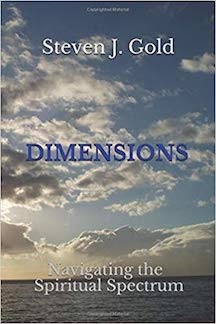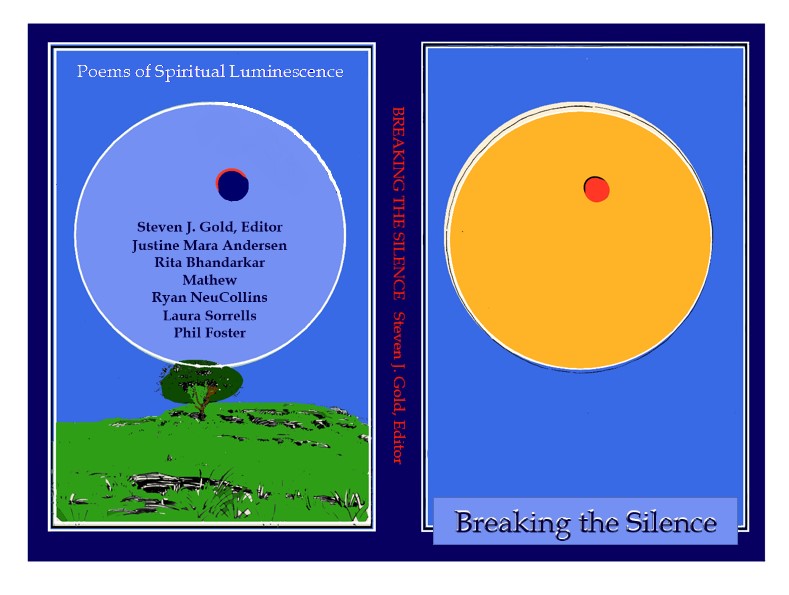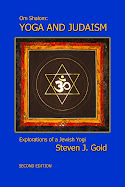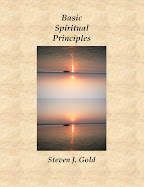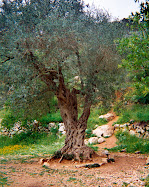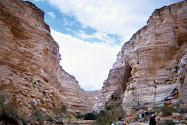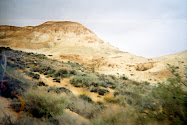Quote of the Week 419 - Listend/Hearing for Non-material Sustenance
Quote of the Week 419 - Listening/Hearing for Non-material Sustenance
Every one who is thirsty, come and drink. He who has no money, come, buy and eat. Come, buy wine and milk without money and without price. Why do you spend your money for that which is not bread and your labor for that which does not satisfy? Listen carefully to Me, and eat what is good. Let your soul delight in abundance. Incline your ear, and come to Me. Hear, that your soul will live…
--Isaiah 55:1-3, The Living Torah translation by Rabbi Aryeh Kaplan
Meditation (Click your selection, scroll down to view it)
- Audio Link: Interview - You Cannot Avoid Mystery; Eastern Meditation
- Audio Link: A Foundation for a Fruitful Meditation Practice: Science of Breath/Pranayama/Relaxation - Theory and Practice
- Audio Link: (Scroll to 11/04/18 entry) The Breath and Life Force; Guided Meditation - I Am an Empty Shell, Therefore I Am Full, etc.
- Meditation Basics - Expanded Version
- Meditation Basics - Condensed Version
- Mantra Meditation Basics
- Nada Meditation - Anahata/The Unstruck Sound
- Jewish Yoga Meditation
- Hebrew Mantras
- Hebrew Mantras, Part Two
- Hebrew Mantras, Part Three
- Hebrew Mantras - Adonai Hineni
- Healing Meditation: Ruach El Shaddai/Breath of Balance
- Meditating, Eating and Sleeping
- Shortcuts to Spiritual Development?
- Audio Link: Guided Meditation - I Am and Empty Shell, Therefore I Am Full; A Meditation on Emptiness and Dark Luminescence Based on the Opening Lines of Genesis
- Guided Meditation: The Stage
- Guided Meditation: I Am an Empty Shell, Therefore I Am Full; A Meditation on Emptiness and Dark Luminescence Based on the Opening Lines of Genesis
- Guided Meditation: The Rod, The Staff, and The Star
- Torah-Veda Meditation Class Site
- Interspiritual Contemplative Group
CURRENT TEACHING SESSIONS
Thursday, May 28, 2009
Quotes of the Week 93 - Carlos Castaneda
I am happy that you finally asked me about my controlled folly after so many years, and yet it wouldn’t have mattered to me in the least if you had never asked. Yet I have chosen to feel happy, as if I cared that you asked, as if it would matter that I care. That is controlled folly!
Certain things in your life matter to you because they’re important; your acts are certainly important to you, but for me, not a single thing is important any longer, neither my acts nor the acts of any of my fellow men. I go on living, though, because I have my will. Because I have tempered my will throughout my life until it’s neat and wholesome and now it doesn’t matter to me that nothing matters. My will controls the folly of my life.
Our eyes look so we may laugh, or cry, or rejoice, or be sad, or be happy. I personally don’t like to be sad, so whenever I witness something that would ordinarily make me sad, I simply shift my eyes and see it instead of looking at it. But when I encounter something funny I look and I laugh.
Our lot as men is to learn.
Only as a warrior can one survive the path of knowledge, because the art of a warrior is to balance the terror of being a man with the wonder of being a man.
The idea of death is the only thing that tempers our spirit.
-- The words of Don Juan Matus from the works of Carlos Castaneda
Sunday, May 24, 2009
Bibliograph/Book Review; Castaneda, Carlos; The Teachings of Don Juan: A Yaqui Way of Knowledge, A Separate Reality; Journey to Ixtlan, et al.
Castaneda, Carlos; The Teachings of Don Juan: A Yaqui Way of Knowledge; A Separate Reality; Journey to Ixtlan, et al.
I am aware of the controversies surrounding Mr. Castenada and the chronicles of his adventures and apprenticeship with a Mexican Yaqui Indian sorcerer by the name of Don Juan Matus, all presented as true stories, although there is significant evidence that they were mostly flights of fancy, borrowing heavily from other sources without attribution, amounting to plagiarism. In this light, it is unfortunate that he chose the medium of non-fiction. His books may have had the same popularity and effect without the controversy if he had couched it all in terms of fiction, whereby his tales may still have taken their place alongside similar inspiring fictional works set in other realms, such as The Lord of the Rings, Dune, The Chronicles of Narnia, and more recently, the Harry Potter series. Because for me, it is of little matter whether Castaneda’s stories were literally true or not, just as these others were not. They all exist in some world, and I am happy that they do.
When I first heard of these books, back in the 70’s, I hungrily consumed them and eagerly awaited for news of the next installment. Of course, the first book was a great hit among those in the drug culture, with its seeming endorsement of the use of hallucinogens as a tool for self-development. Castaneda quickly burst that bubble with a subsequent message that the hallucinogens were of a limited use and eventually unnecessary. But the tales, teachings, and wisdom were often profound, moving, humorous and poetic, and they had a deep and positive influence on my young and growing psycho-spiritual being. I feel deeply grateful for having been exposed to them and highly recommend them to anyone looking for spiritual teachings and inspiration couched in a captivating story-line about an apprentice and a master involved in extraordinary powers and events.
Thursday, May 21, 2009
Quote of the Week 92 - A Liberating Upgrade
--Vaishali, in a “First Person” column in Oracle 20/20 Magazine, May 2009
Sunday, May 17, 2009
Joseph Gelberman - Rabbi Yogi
Founder of nation's first interfaith institution comes to Torrance to demonstrate his latest teaching, a blend of Jewish mysticism and yoga.
Daily Breeze/October 23, 2004
By Sandy Cohen
Forty-five years ago, no word existed to describe what Joseph Gelberman was doing.
He was a Hasidic rabbi who hung out with swamis, priests and ministers, talking about God.
"God only gave part of his wisdom to each of the religions," the rabbi said. "We must come together to understand it completely."
Thus began interfaith studies in America.
At 92, Gelberman is still at it. He came to Torrance recently to demonstrate his latest interfaith lesson: Kabbalah in Motion.
"I've been a Yogi for 45 years and a Kabbalist for 75 years," he said, a touch of an accent revealing his Hungarian roots. "I decided to combine the two sciences into a morning meditation that keeps you alive."
He brought the practice to Congregation Beth Torah in Torrance, where his former student Gary Spero serves as rabbi.
Gelberman is "one of the greatest rabbis of our generation," Spero said.
Gelberman founded the nation's first interfaith institution, New York's New Light Temple, with Sri Swami Satchidananda and the Rev. Jon Mundy in the early 1970s. A decade later, he helped establish The New Seminary, dedicated to training interfaith ministers and spiritual counselors. He ordains rabbis through his Rabbinical Seminary and, at age 87, he opened All-Faiths Seminary International, a source of advanced spiritual education for clergy and professionals.
But the diminutive, white-haired Gelberman is so approachable, so lighthearted, he seems more like an undersized Santa Claus than a revered religious scholar.
He doesn't wear a yarmulke. He eats in nonkosher restaurants. ("I'm vegetarian anyway," he said.) And he thinks any distinction between religions is "an insult to God."
"We have a part of God in each of us," he said.
That belief is the foundation of all Gelberman's teachings, including Kabbalah in Motion.
Simply put, Kabbalah, a form of Jewish mysticism, centers on God as a limitless being that permeates all living things. This theory fuels the rabbi, who considers himself a brother to all who live.
"I'm your brother," Gelberman told a woman in the Torrance congregation. "So will you have me over for dinner tomorrow?"
Kabbalah in Motion is a series of exercises that combine yogic traditions with Hebrew mantras. Movements coordinate with the 22 letters of the Hebrew alphabet and Kabbalistic concepts of gratitude, reverence, willingness and love.
The gentle poses look familiar to anyone who's taken a yoga class. Gelberman performs them each morning -- a source of his good health and spiritual well-being, he said.
But it's more than just an exercise regime. It's an approach to living.
"It's 12 principles that will change your life," he said. "If you're ready to change your life."
It takes more than a 15-minute routine to experience the transformative benefits of Kabbalah in Motion, Gelberman said.
"You will have to be ready to accept a wholesome discipline into your life," he wrote in his introduction to the practice. "Your diet will have to be healthy. You will have to modify unhealthy habits relating to smoking and drinking. And, you will have to be committed to gradually learning to speak the truth."
Little by little, he said, "you will be able to hear more distinctly the still, small voice of your divine soul."
Meditation puts us in touch with God, he said, and Kabbalah in Motion is a moving meditation.
Even those who have never studied the Bible, Torah or Talmud can benefit from Kabbalah in Motion. It begins with a secure knowledge that all are one, Gelberman said.
"It's not how much you know, it's how much you feel," he said. "The mind can be a little bit flaky. Listen to your heart."
Thursday, May 14, 2009
Quote of the Week 91- Vice
--Swami Rama Tirtha, from Practical Vedanta, Selected Works of Swami Rama Tirtha, Edited by Brandt Dayton
Thursday, May 7, 2009
Quote of the Week 90 - The Hand That Conceals the Mountain
--Source forgotten

